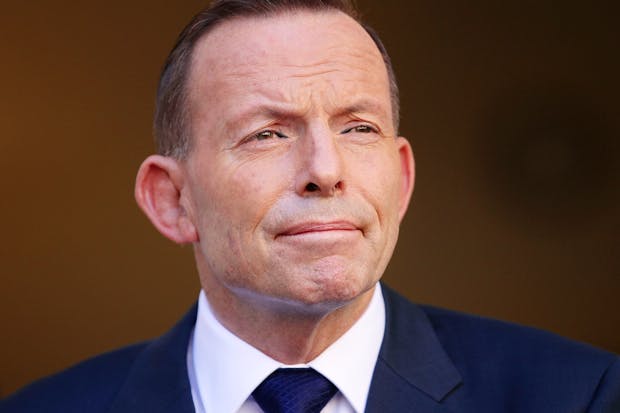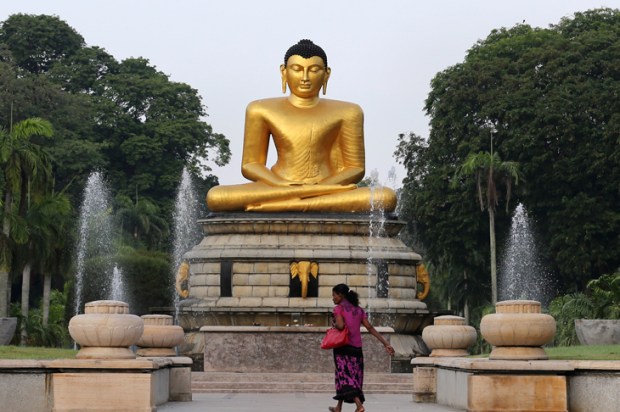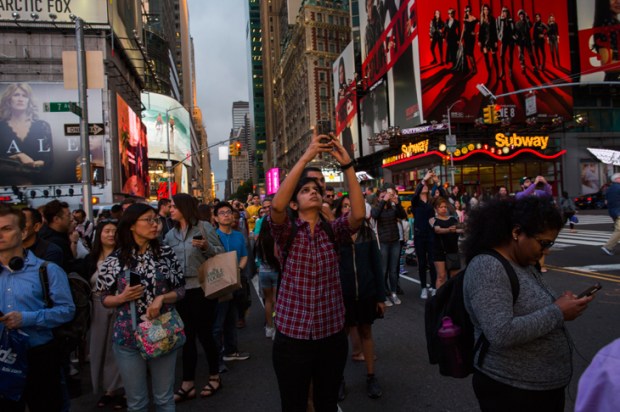Some months back, head of government duties meant that I had to decline an invitation to give the Thatcher lecture in London to commemorate one of Britain’s greatest ever prime ministers. Some weeks ago, noticing that I had more time on my hands, the organisers renewed their invitation. I was very pleased to accept.
What was it that made Margaret Thatcher a great leader? Successful leaders need judgment, temperament, energy, self-belief – and, the quality that Napoleon valued above all in his generals, luck. Three years into her prime ministership, Thatcher was deeply unpopular for refusing to bail out failing companies and was openly defied by senior members of her cabinet; but Providence gave her two spectacular opportunities to demonstrate her mettle: in 1982 she despatched an expedition that liberated the Falkland Islands from Argentine invasion; and, in her second term, she stared down a coal miners’ strike designed to show that unions were more powerful than government. Along the way, particularly by selling council houses to their tenants, she helped to resurrect the entrepreneurial spirit that has once more made Britain the most dynamic economy in Europe. She set the gold standard for strong leadership based on clear convictions.
My challenge was to say something worthy of her. It had to be an issue of consequence and it had to be a subject where I had standing – so perhaps unsurprisingly, I spoke of the challenge of illegal migration that Europe is struggling with but that Australia, at least for the moment, has largely solved. No one should underestimate Australia’s achievement here. In the month of July 2013 alone, scarcely two years ago, more than 4,000 boat people arrived in Australia. Illegal arrivals were then running at the rate of 50,000 a year and rising fast. This time, even the principal authors of the policies that had previously stopped the boats after 2001 believed that the situation was too-far-out-of-control to be fixed. But fix it my government did. To the Howard government’s policies we added the preparedness to send people back in orange life boats where people smugglers had scuttled their vessels. As soon as the people smugglers and their customers realised that putting to sea would simply bring them back to Indonesia many thousands of dollars poorer, the trade stopped – and so did the drownings, which is why stopping the boats was the only truly compassionate thing to do.
For a couple of years now, thousands of people a month have been coming by boat from Libya to Italy; and over the past few months, new routes have opened by land from Turkey and by sea to Greece with illegal arrivals now approaching a million a year. Even larger numbers are in prospect as long as Europe takes the view that ‘if you can get here, you can stay here’. Hence, I respectfully advised Europe, based on our own experience as the only country so far to have defeated the people smugglers, to turn boats around, for people coming by sea; to deny entry at the border, for people with no legal right to come; and to establish camps in countries other than their preferred destination, for people who currently have nowhere else to go. This, I said, would ‘require some force; it will require massive logistics and expense; it will gnaw at our consciences – yet it is the only way to prevent a tide of humanity surging through Europe and quite possibly changing it forever’. In any morality contest, preventing hundreds of deaths at sea surely justifies robust measures to prevent people smuggling. Amidst carping from the usual suspects, gratifyingly, the UK Spectator editorialised that ‘Abbott (had) explained what so few European policy makers seem able to grasp’
While in Britain, I caught up with Sir Michael Hintze, perhaps the most successful Australian businessman in London; Alexander Downer, who’s hugely enjoying a second stint of public service; Rupert Murdoch, who arguably has had more impact on the wider world than any other living Australian; Tony Blair, by far British Labour’s most electorally successful prime minister; and Prime Minister David Cameron who’s still savouring his against-the-polls win in this year’s election, assisted by our very own strategist Lynton Crosby.
In Australia, Cameron is mostly portrayed as the conservative who supports gay marriage and takes climate change seriously but his real strength has been successful social and economic reform. So far, his government has transformed education by, in effect, privatising public schools; tackled the culture of welfare by ensuring that people are always better off in work than out of it; and halved the deficit inherited from Labour. His election victory depended on the relentless campaign contrast of order under the conservatives versus chaos under Labour. Yet his government’s latest measure to rein in spending – reducing tax credits for the low income workers while increasing the minimum wage – has been rejected in the House of Lords. It shows how carefully even politically ascendant conservatives have to tread.
Prime Minister Cameron is looking forward to meeting his new Australian counterpart. As a potential reformer, Malcolm Turnbull has the advantage of being relatively unbound by previous commitments but still faces the problem of how to deal with the ‘no one can be worse off’ mindset that makes serious reform so hard. Changing the tax burden from income to spending makes sense but only if overall taxes become lower, simpler and fairer. The real challenge, in Australia as in Britain, is how responsibly to spend less on short-term consumption and more on long-term investment in infrastructure and national security. How, in short, can government best foster the economic growth that makes everything else so much easier? That always makes for a good conversation between conservative leaders.
Got something to add? Join the discussion and comment below.
Get 10 issues for just $10
Subscribe to The Spectator Australia today for the next 10 magazine issues, plus full online access, for just $10.














Comments
Don't miss out
Join the conversation with other Spectator Australia readers. Subscribe to leave a comment.
SUBSCRIBEAlready a subscriber? Log in